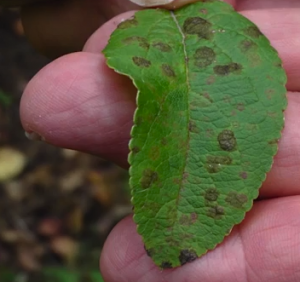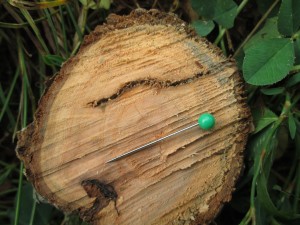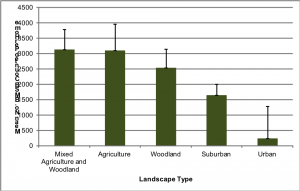Date: Tuesday, February 10, 2015
Time: 8:00 am – 2:00 pm
Location: Rutgers Agricultural Research & Extension Center
121 Northville Road, Bridgeton, NJPre-Registration: Required, by February 4th
Contact Karen Holton at holton@aesop.rutgers.edu
856-455-3100 x4104Cost/person: $15.00
Lunch: Included
Pesticide Credits: Awarded for Cat 10, 1A, Core, PP2
Program details: Norm Lalancette
856-455-3100 x4124
Tree Fruit Edition
Seasonal updates on insects, diseases, weeds, maturity dates and cultural practices impacting only tree fruit.
Subscriptions are available via EMAIL and RSS.
South Jersey Commercial Tree Fruit Meeting
Tree Fruit Meeting for Commercial Growers
Date: Tuesday, February 10, 2015 @ 8:00 am – 2:00 pm
Location: Rutgers Agricultural Research & Extension Center, 121 Northville Road, Bridgeton, NJPesticide Credits Awarded | Lunch will be Served | Program to Follow
For pre-registration contact: Karen Holton at holton@aesop.rutgers.edu or 856-455-3100 x4104
For program details contact: Norm Lalancette at 856-455-3100 x4124
The 2015 South Jersey Commercial Tree Fruit Meeting has been scheduled for Tuesday, February 10 and will be held at the Rutgers Agricultural Research and Extension Center (RAREC), Bridgeton, NJ.
The meeting will consist of presentations on horticulture, entomology, weed science, and pathology of tree fruits during the morning, followed by an included lunch. An open discussion and question session on any aspect of tree fruit production is scheduled for after lunch. The full program will be published in the upcoming weeks.
Pre-registration is required and a fee will be charged to cover the cost of morning coffee/pastries and lunch.
Save the Date!
Granulate Ambrosia Beetle in Tree Fruit
A farm in Southern NJ is experiencing an infestation of the granulate ambrosia beetle, Xylosandrus crassiusculus (Mot.). GAB was identified by expert Dr. James Lashomb at Rutgers. Adults are hunch-backed in appearance and are cinnamon or brownish in color. Females are 2.1-2.9mm in length and males are 1.5mm. Offspring are small white and legless c-shaped larvae.
Females bore into trunks or limbs and excavate a system of tunnels in the wood. The beetles feed on living trees and carry a mutualistic fungus with them. When GAB females attack a tree, they introduce the fungus, which also is used as a food source. Eggs, larvae, and pupae are found together in galleries. There are related ambrosia beetles that attack apple and are present in other states and it is possible we have multiple species.
Fall Urea Sprays for Apple Scab Control
It’s time to consider sanitation practices that can help reduce over wintering scab inoculum. These practices should be considered an essential part of apple IPM programs.

Apple Scab Control with Urea.
Video link: http://youtu.be/8g0WyVi68GM
For a refresher we’ve linked a short video explaining this approach.
Volunteers Needed for Brown Marmorated Stink Bug Count
Scientists at the USDA are conducting a second year of the “Great Stink Bug Count” and are looking for volunteers from NJ! They are trying to identify characteristics of houses that brown marmorated stink bugs look for when finding overwintering sites. Last year’s count had over 200 volunteers with 44 individuals who counted every day.
The basics:
- Fill out the form
- Count the BMSB on the exterior of your home each day
- Enter in your count data
Consider participating in the 2014 Great Stink Bug Count!
September 15 – October 15, 2014
You can download particpant forms here: http://www.stopbmsb.org/2014-
Results from 2013 are the first to document factors that may be important in where bugs chose to overwinter. Last year’s results suggest that landscape factors, specifically agriculture and woodland habitats, may have the greatest influence on the number of BMSB overwintering on a house.
This data will go a long way to helping us figure out important steps to managing BMSB. They are looking for citizen scientists to help out! Please fill out the attached form and send it in if you are interested!
Fruit IPM Report August 26, 2014
The week in Fruit IPM
- Tree Fruit
- Grape
- Blueberry


